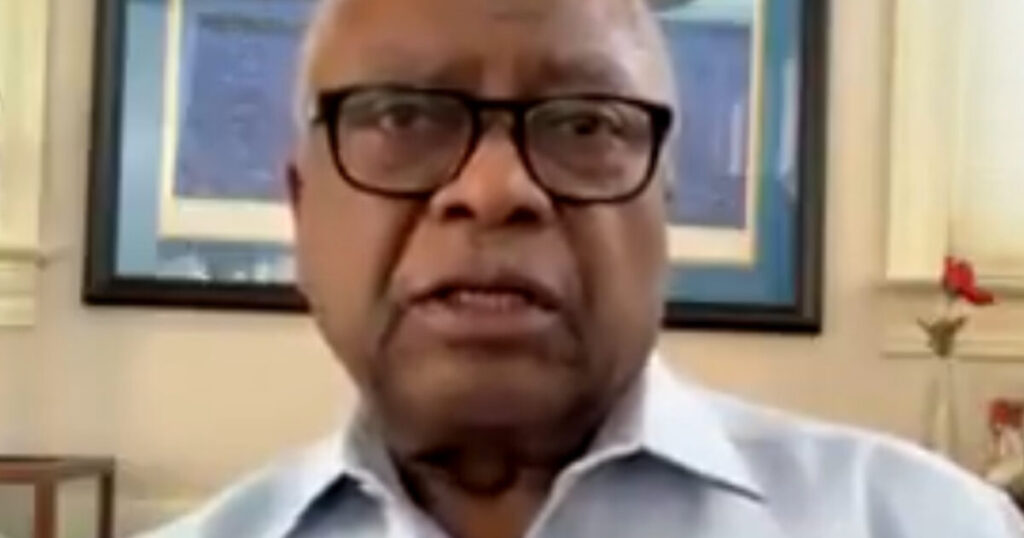Rep. Jim Clyburn recently expressed his views on the controversial topic of pardons related to the January 6th protests during an appearance on CNN’s “Meet The Press.” Clyburn, a prominent South Carolina Democrat and supporter of President Biden, stated that he acknowledges Donald Trump’s presidential prerogative to issue pardons. He emphasized the importance of evaluating each case individually rather than implementing a blanket pardon for all individuals involved in the Capitol riot. Clyburn’s stance reflects a belief in the potential for redemption and second chances, particularly for those who may have been swept up in the emotional turmoil of the day. However, he was clear that individuals engaged in violent or aggressive actions against law enforcement officers should not be pardoned, distinguishing between those who may deserve mercy and those who committed offenses that warrant accountability.
The discussions surrounding potential pardons for January 6th participants are gaining momentum as Trump has indicated his willingness to take swift action upon taking office again. Trump expressed his intention to assess each case “on day one” of his presidency in an interview, aiming to address what he perceives as wrongful persecution of protesters by the current administration. His comments suggest a commitment to reviewing individual cases rather than applying a blanket approach that Clyburn warns against. This signals an ongoing political divide, as Clyburn’s views appear to contrast sharply with Trump’s approach, potentially setting the stage for an intense debate over the appropriateness and implications of such pardons.
Clyburn’s remarks come in the context of his own controversial decision to pardon his son, Hunter Biden, for federal tax and gun offenses. This act has drawn criticism and raised questions about his earlier stance against pardoning his son, emphasizing the complex interplay of personal and political considerations regarding clemency. Clyburn stated that he supported the pardon system as a mechanism for forgiveness and reinvention but reiterated that the circumstances surrounding each individual’s actions should be carefully considered. His commentary underscores the nuances in political rhetoric surrounding pardons, especially when viewed through both a familial and a broader societal lens.
The growing anticipation around Trump potentially issuing pardons connects back to broader sentiments concerning the January 6th protests, which some supporters frame as a justified response to alleged electoral fraud from the 2020 election. Trump’s claims of widespread fraud have fueled continued agitation and defense for individuals involved in the Capitol riot, framing them as victims of an unjust political system. This narrative resonates with his base and hints at the complexities of how protests, perceptions of justice, and political identities intertwine in contemporary American politics. By signaling that he intends to take immediate actions on this front, Trump seeks to galvanize support among his followers who feel disenchanted by the current administration.
The discourse surrounding Clyburn’s and Trump’s positions illustrates a polarized national landscape concerning justice and accountability following the January 6th events. Each legislator’s perspective on the use of pardons not only reflects their political alignments but also reveals their underlying philosophical beliefs about justice, forgiveness, and the rule of law. Clyburn’s case-by-case approach seeks to balance compassion with a demand for justice, while Trump’s potential blanket pardons could be viewed as an endorsement of the actions taken by the rioters. This dichotomy reinforces the challenges of navigating a political climate steeped in divisions, where the implications of pardons transcend individual cases and spark broader conversations about civic responsibility, the integrity of democratic processes, and the nature of political reconciliation.
As the debate continues, the actions taken by both Trump and Clyburn will likely have significant implications not only for those directly involved in the January 6th protests but also for future discussions regarding the role of pardons in American governance. The unfolding situation underscores the importance of examining how political leaders utilize their clemency powers and the various factors that influence such decisions. Ultimately, the outcomes of these debates and decisions may have far-reaching consequences for the political landscape, influencing public opinion, voter mobilization, and the ongoing efforts to address grievances stemming from the 2020 election and its aftermath.

